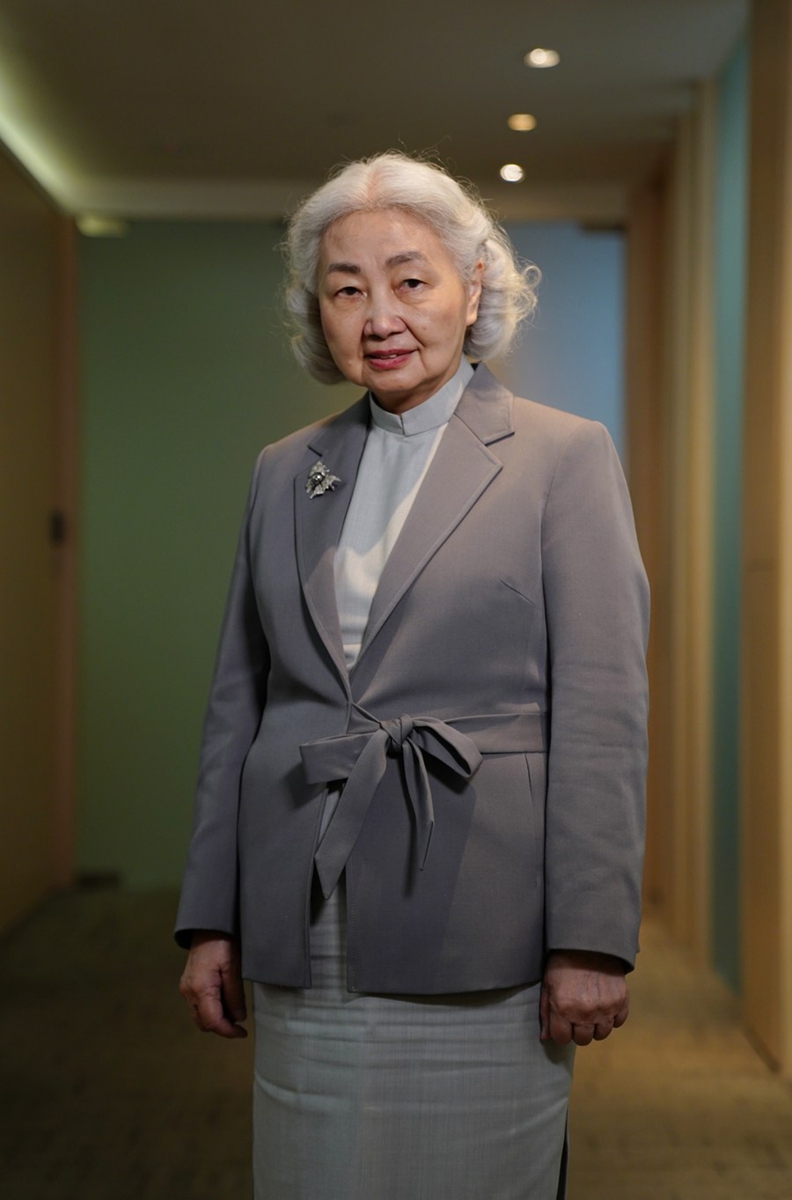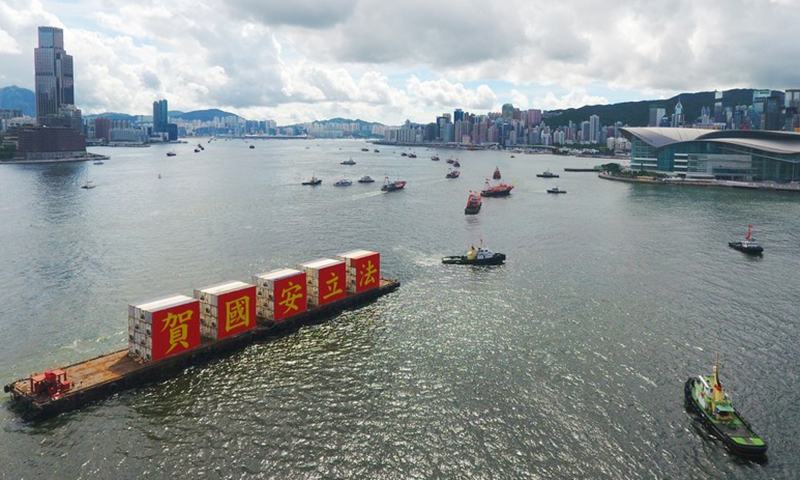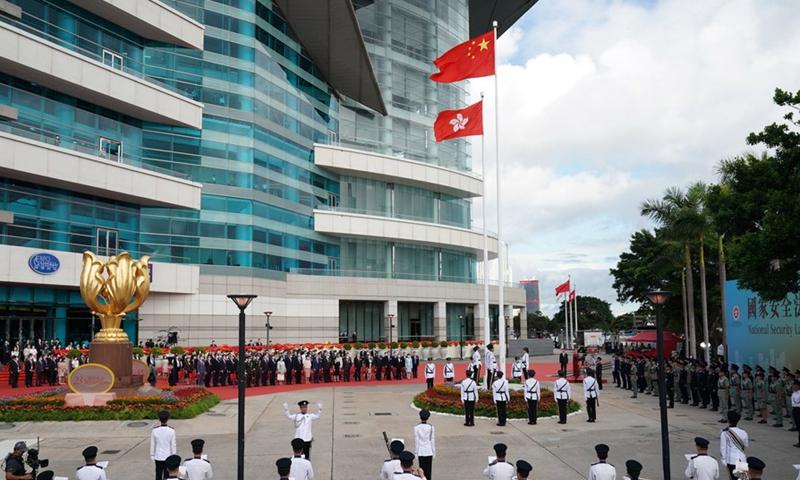National security law to help effectively restore stability in Hong Kong: former justice secretary

Former Secretary for Justice of the Hong Kong Special Administrative Region (HKSAR) government Elsie Leung Oi-sie receives an interview with Xinhua in Hong Kong, south China, July 2, 2020. (Xinhua/Wang Shen)
The Law of the People's Republic of China on Safeguarding National Security in the Hong Kong Special Administrative Region (HKSAR) will help effectively punish crimes endangering national security and restore stability in Hong Kong, former Secretary for Justice of the HKSAR government Elsie Leung Oi-sie said in a recent interview with Xinhua.
Leung said that the law will also help create a sound external environment for solving other deep-rooted problems in Hong Kong.
Leung, who headed the HKSAR government's Department of Justice from 1997 to 2005, said the law, by clearly defining the four categories of crimes endangering national security and prescribing penalties for them, provides the HKSAR government with adequate legal basis to effectively punish the relevant crimes.
Since the social unrest arising from the now-withdrawn ordinance amendments concerning fugitive transfers in June last year, Hong Kong's prosperity and stability have been seriously undermined due to consistent violent activities by some rioters. Leung noted that many of the rioters not only damaged Hong Kong's law and order, but also colluded with external forces in an attempt to endanger national security.

A ship carrying the slogan of "celebrating the passage of the Law of the People's Republic of China on Safeguarding National Security in the Hong Kong Special Administrative Region (HKSAR)" sails at the Victoria Harbour in Hong Kong, south China, July 1, 2020. (Xinhua/Lui Siu Wai)
Only by taking effective legal measures to punish these acts can Hong Kong achieve lasting peace and stability, she said, adding that the national security law for Hong Kong will effectively prevent, curb and punish acts and activities endangering national security, which will help restore stability and create a sound external environment for solving other deep-seated problems in Hong Kong.
The former justice secretary said the law fully takes into account the differences between the legal systems in the mainland and Hong Kong and respects principles of Hong Kong's common law system.
Leung also sternly refuted the allegations by some Western politicians that the law will undermine Hong Kong's judicial independence.
Citing Article 85 of the Basic Law of the HKSAR, she affirmed that with the guarantee of laws including the Basic Law, the HKSAR courts can adjudicate cases free from any interference.
According to the law, the Office for Safeguarding National Security of the Central People's Government in the Hong Kong Special Administrative Region will only exercise jurisdiction over an extremely small number of criminal cases that endanger national security under specific circumstances, she noted, agreeing that the provision is reasonable.

A flag-raising ceremony is held by the government of the Hong Kong Special Administrative Region to celebrate the 23rd anniversary of Hong Kong's return to the motherland at the Golden Bauhinia Square in Hong Kong, south China, July 1, 2020. (Xinhua/Li Gang)
Since its return to the motherland 23 years ago, Hong Kong has been ranked high in the world in terms of freedom indices and has been globally recognized for its judicial independence and sound legal system, Leung said, adding that the legitimate rights and freedoms of Hong Kong residents have been fully protected.
The national security law for Hong Kong provides that the freedom of speech and press, among others, enjoyed by Hong Kong residents in accordance with the Basic Law and relevant international covenants will be protected, and the principle of the rule of law will be upheld in preventing, stopping and punishing offenses endangering national security, she noted. "The human rights of Hong Kong residents will continue to be fully protected."
As the law has come into effect, the key in the future is the effective implementation, Leung said, believing that the HKSAR can fulfill its constitutional responsibility for safeguarding national security in cooperation with the central authorities.
